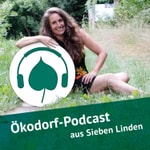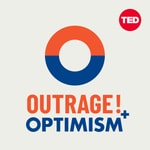EXALT Podcast – Détails, épisodes et analyse
Détails du podcast
Informations techniques et générales issues du flux RSS du podcast.

EXALT Podcast
EXALT Initiative
Fréquence : 1 épisode/23j. Total Éps: 82

Classements récents
Dernières positions dans les classements Apple Podcasts et Spotify.
Apple Podcasts
🇫🇷 France - documentary
07/12/2024#79🇩🇪 Allemagne - documentary
12/10/2024#97🇫🇷 France - documentary
05/09/2024#84
Spotify
Aucun classement récent disponible
Liens partagés entre épisodes et podcasts
Liens présents dans les descriptions d'épisodes et autres podcasts les utilisant également.
See all- https://scholar.google.com/citations?hl=en&
106 partages
- https://www.stopecocide.earth/
20 partages
- https://ecovillage.org/
12 partages
- https://twitter.com/berilocakli?lang=en
2 partages
- https://twitter.com/cazamazac
2 partages
- https://twitter.com/futuresustfoods
2 partages
Qualité et score du flux RSS
Évaluation technique de la qualité et de la structure du flux RSS.
See allScore global : 38%
Historique des publications
Répartition mensuelle des publications d'épisodes au fil des années.
Andrea Brock - Why were German police pepper spraying toilet seats in the Hambach forest?
vendredi 30 août 2024 • Durée 44:07
This month we are delighted to be joined by Andrea Brock, who is a political ecologist at University of Sussex. Andrea works with forest defenders and environmental movements looking at the responses from state and corporate actors to ecological dissent. Andrea shares with us the trajectory of her research career which was influenced by being brought up in the German Rhineland in proximity to the world’s largest open-cast lignite mine. She shares with us her insights into the actions of the mining company and the greenwashing acrobatics that are put in place to distract from the ecological destruction that is taking place as a result of these mining projects. She gives insight into the repression that had been levied against land defenders in the ancient Hambach Forest which has been under threat from mine operator RWE. In addition, the relationships between different types policing and ecocide are explored and how this influences the domination of non-human and human species.
Her research is based in the European context and examines how the logics of repression play out and ecological defenders are criminalized in Europe.
Want to learn more about Andrea Brock’s work? https://profiles.sussex.ac.uk/p322495-andrea-brock
Resources mentioned during the episode:
Brock, A., & Dunlap, A. (2018). Normalising corporate counterinsurgency: Engineering consent, managing resistance and greening destruction around the Hambach coal mine and beyond. Political geography, 62, 33-47. https://doi.org/10.1016/j.polgeo.2017.09.018.
Dunlap, A., & Brock, A. (Eds.). (2022). Enforcing ecocide: Power, policing & planetary militarization. Springer Nature. https://doi.org/10.1007/978-3-030-99646-8
TreesForDev - Maria Ehrnström-Fuentes and Steffen Boehm - How do carbon markets work (and do they actually work)?
mardi 27 août 2024 • Durée 41:57
In this episode we are joined by Professor Steffen Böhm from University of Exeter School of Business and project PI and Associate Professor Maria Ehrnström-Fuentes from Hanken School of Economics. In this conversation we explore carbon markets and how they work (or do not work) and what their connection is to so-called green development. We talk about compliance markets and voluntary markets. In the voluntary carbon markets, anyone can develop a project that plants trees in exchange for carbon credits. There are mechanisms and logics that are not well understood by the general populace that allow highly polluting companies to make themselves look carbon neutral or green through their participation in carbon offsetting. This myopic focus on carbon has developed into a more or less fetishist relationship with carbon and overly simplified measurements that obfuscate the wider social environmental impacts of companies.
Interested to learn more about Steffen’s work? https://business-school.exeter.ac.uk/people/profile/index.php?web_id=Steffen_Boehm
Interested to learn more about the TreesForDev Project? www.treesfordev.fi
Resources mentioned in the episode:
Böhm, S., Misoczky, M. C., & Moog, S. (2012). Greening capitalism? A Marxist critique of carbon markets. Organization Studies, 33(11), 1617-1638. https://doi.org/10.1177/0170840612463326
Ehrnström-Fuentes, M., & Kröger, M. (2018). Birthing extractivism: The role of the state in forestry politics and development in Uruguay. Journal of Rural Studies, 57, 197-208. https://doi.org/10.1016/j.jrurstud.2017.12.022
Ramirez, J., & Böhm, S. (2021). Transactional colonialism in wind energy investments: Energy injustices against vulnerable people in the Isthmus of Tehuantepec. Energy Research & Social Science, 78, 102135. https://doi.org/10.1016/j.erss.2021.102135
Xander Dunlap - How is this system killing us and what can we do?
vendredi 29 mars 2024 • Durée 55:40
This month on the EXALT podcast we are super excited to be joined by Xander Dunlap for a precedent-breaking third conversation. Xander is a research fellow at the Institute for Global Sustainability at Boston University and a visiting research fellow at Global Develop Studies at University of Helsinki. Xander talks to us about his new book from Pluto Press, “This System is Killing Us: Land Grabbing, the Green Economy and Ecological Conflict.” This book looks at the last 10 years of work Xander has done in the thick of environmental conflict. Xander unpacks the themes of the book for us and gives us insight into the concept of permanent ecological conflict. Token forms of activism and feel-good activities, which are not unfamiliar to academic circles, are not enough to think past the existing frameworks and modalities that people are living under. This book is an intervention against the mainstreaming or normalization of ecological crises. This conversation covers so many different aspects of the book and Xander’s work. Join us for this impactful insight into why and how “This System is Killing Us.”
Check out Xander’s new book https://www.plutobooks.com/9780745348827/this-system-is-killing-us/
Check out Xander’s profiles at Boston University https://www.bu.edu/igs/profile/alexander-dunlap/ and University of Helsinki https://researchportal.helsinki.fi/en/persons/alexander-dunlap
Find Xander on X (formerly Twitter) @DrX_ADunlap
TreesForDev - Ossi Ollinaho & Máriam Abbas - Are tree planting schemes in Mozambique stealing carbon credits from the poor to give to the rich?
mardi 26 mars 2024 • Durée 32:26
In this episode we are joined by Ossi Ollinaho and Máriam Abbas. Ossi is a project researcher from the TreesForDev project leading the work package that is looking at Mozambique. Máriam is a researcher from Observatório do Meio Rural (OMR), in Mozambique, who is coordinating the research line “Environment and Rural Areas”, which explores, among other topics, the impacts of climate change on agriculture, the causes of deforestation and mainstreaming biodiversity in the agricultural sector.
Ossi and Máriam give us insight into why Mozambique is one of the case study countries in the TreesForDev project. Agriculture accounts for approximately 25 percent of the GDP of the country. Thus, there is a large rural population, and the forest has a very important role in the rural populations’ livelihood prospects. They reflect on the economic system and the underlying extractivist logics that are often incompatible with improving local conditions.
Want to learn more about the TreesForDev project? www.treesfordev.fi
Want to learn more about our collaborator in Mozambique, Observatório do Meio Rural (OMR)? www.omrmz.org
Want to learn more about Siemenpuu Foundation’s work in Mozambique? https://siemenpuu.org/en/countries/mozambique/
TreesForDev - Maria Ehrnström-Fuentes & Markus Kröger - Can tree planting schemes tackle climate change?
mardi 27 février 2024 • Durée 44:37
Welcome to the debut episode of the limited series TreesForDev project podcast. In this episode we are honored to be joined by the project principal investigators, Maria Ehrnström-Fuentes and Markus Kröger, from Hanken School of Economics and University of Helsinki respectively. In this conversation, they introduce us to who they are and what types of questions are being investigated in the TreesForDev project. This project examines the dynamics of ecological restoration involving tree planting schemes. Planting trees is a popular and “easy” way to try to restore ecosystems and mitigate climate change. Our project examines the socio-ecological/economic impacts of tree planting in the global South. The project is funded by the Ministry for Foreign Affairs through the Develop2 funding instrument, which is managed in conjunction with the Research Council of Finland. The TreesForDev will run until the end of 2026 and includes research in Finland, Madagascar, Ethiopia, Mozambique, and Brazil. Want to learn more about the TreesForDev Project? Visit our website at www.treesfordev.fi Want to learn more about Maria’s work? Please visit her research profile https://www.hanken.fi/en/person/maria-ehrnstrom-fuentes Want to learn more about Markus’ work? Please visit his research profile https://www.helsinki.fi/en/about-us/people/people-finder/markus-kroger-9091436
This limited series podcast is made possible through funding from the Helsinki Institute of Sustainability Sustainability Science (HELSUS) at the University of Helsinki. If you would like to learn more about HELSUS, please check out their webpage: https://www.helsinki.fi/en/helsinki-institute-sustainability-science
Martta Kaskinen - How are radical feminists in Kenya making their voices heard?
vendredi 23 février 2024 • Durée 37:42
This month we are overjoyed to be joined by fellow University of Helsinki Global Development Studies doctoral researcher, Martta Kaskien. Martta is currently working with the project Citizenship Utopias in the Global South: The Pursuit of Transformative Alternatives in Times of Civic Disillusionment. Her research is centred on feminist activist narratives in Kenya using ethnographic methods. She gives us insight into her research trajectory and how she got to this topic in this context, and how the COVID-19 pandemic impacted her fieldwork. She gives us insight into how the social pressure from anti-feminist political and public spaces, especially on social media, impact feminist activism and activists. However, even in the face of this pressure she has noticed the prevalence of curated spaces on social media that are created by the feminist activists themselves. These spaces are focused on community building and represent safe spaces for radical feminists to express themselves in the way they wish. These spaces are a form of an everyday utopia and allows these feminists to live life as they would like to today and how they would like to live in the real world in the future.
If you would like to know more about Martta’s research work, please check out her University profile https://researchportal.helsinki.fi/en/persons/martta-kaskinen
If you would like to read more about the Citizenship Utopias Project https://blogs.helsinki.fi/citizenshiputopias/
Want to check out Eija Ranta’s episode that we refer to? Here is a direct links for your convenience.
Apple podcasts: https://podcasts.apple.com/zw/podcast/eija-ranta-when-indigenous-movements-lead-governments/id1499621252?i=1000622609915
Spotify: https://open.spotify.com/episode/1XUlXgKRWFSUj4jxh6yz3a?si=LbXpbC20SKOccxJoPOLGGw
Avi KBH - Why do we need to break away from a war narrative with "pests"?
mardi 30 janvier 2024 • Durée 59:20
This month we have a deeply interesting conversation with social anthropologist, Dr. Avi KBH, who is a Postdoctoral Researcher in the project Animal Crosslocations, which is resourced through the Resilient and Just Systems (RESET) Network at University of Helsinki. We talked about his new project, “Mosquito Crosslocations and Participatory Evaluations of Mosquito Interventions,” and the trajectory that led him to be interested in these topics. In this conversation we think through the complex web of relationships inherent to multispecies interactions. In particular, he highlighted some of the compelling reasons why we need to shift some of our narratives related to the myriad beings we humans characterize as “pests”. Pests is in quotes because using this language casually brings its own sometimes (often) misguided perceptions and assumptions about the role the being in question plays within the wider web of life.
If you would like to engage with Avi and learn more about the Animal Cross locations project, please visit his blog - https://blogs.helsinki.fi/avibetzh/
Joonatan Ala-Könni - What can microclimates tell us about climate change?
vendredi 26 janvier 2024 • Durée 44:04
This month we were absolutely delighted to be joined by Joonatan Ala-Könni, for a super interesting conversation that connects natural sciences and extractivisms. Joonatan Ala-Könni is a doctoral researcher in Atmospheric Science at the Institute for Atmospheric and Earth System Research (INAR) at the University of Helsinki. Joonatan’s work is all about climate change and using insights gained from the processes of carbon binding in aquatic environments. The work looks at the physical world – in very basic terms the transport of matter and heat in environments that are water based. His field is called micro-meteorology, which is looking at ecosystems that are no larger than a few hundred meters at the very largest. In the sub-arctic lakes and rivers form a large percentage of the total surface area of the space, thus they become a quite important player in carbon binding. There is surprisingly little data on the role lakes have in binding this carbon. Join us for this conversation to learn more about a natural science view on climate change.
If you are interested to know more about Joonatan and his work, please check out his university profile https://researchportal.helsinki.fi/en/persons/joonatan-ala-k%C3%B6nni
(Belated) 4th Anniversary and a Look Forward at 2024
vendredi 29 décembre 2023 • Durée 08:31
To round out 2023, we wanted to release a brief episode to
celebrate (over) four years of the EXALT Podcast and give a sneak peak at some exciting new happenings in 2024! We apologize for not being able to get a full anniversary special to you this year. We have had a lot on our plates with our respective research, as well as some major (positive) life changes. However, we are excited to announce some upcoming projects which will be crossing over with the EXALT Podcast feed! Don’t worry! We will still be bringing you the EXALT Podcast you know and love each month, but with some limited series peppered in. We hope you will enjoy them!
Thank you all so much for listening! We love doing the podcast and being able to have these conversations, and we wouldn’t be able to do it without you, the listeners. Whether you have been listening from the beginning, you’re just joining for the first time, or came in somewhere in between, we are grateful for you joining us each month!
You can find out more about the TreesForDev project here: https://www.helsinki.fi/en/researchgroups/trees-for-development
You can find out more about the New Directions in Development Studies and Sustainability project here: https://www.helsinki.fi/en/projects/new-directions-development-studies-and-sustainability
From the Cubby (pt. 2) - Why is inclusivity important for systems to work?
vendredi 29 décembre 2023 • Durée 36:28
This month we are ecstatic to bring you the second part of our conversation with the creators of From the Cubby. We are once again joined by the same wonderful trio of guests, Joe Spence, Nick Chamberlain, and Avi Betz-Heinemann. From the Cubby, is a three-part documentary film series, which draws on six years of ethnographic fieldwork in Canterbury, England. The first film follows Martin, a man who was sleeping rough on the streets of Canterbury as a tuberculosis outbreak was about to spread through the rough sleeper community. The Cubby was a makeshift refuge for Martin and Nick. If you have not listened to part 1, which was released in November 2023, we highly suggest that you start there as this is a continuing conversation.
This conversation had a depth and breadth that rivaled our first conversation. Nick shares more of his on the ground experiences living on and off the streets in Canterbury. The subject matter is heady, but there is so much hope and humanity woven throughout the conversation. We hope that our listeners will enjoy the conclusion of this conversation as much as we did.
If you are interested to learn more about the documentary film series From the Cubby and see the trailer, please check out their webpage https://fromthecubby.com/.
If you would like to see the first film and are not able to go to one of the screenings, please send an email to fromthecubby@gmail.com and they can share a way to watch it online.
If you are interested to learn more about Joe’s academic work, please check out his profile at University of Kent https://www.kent.ac.uk/anthropology-conservation/people/4064.









